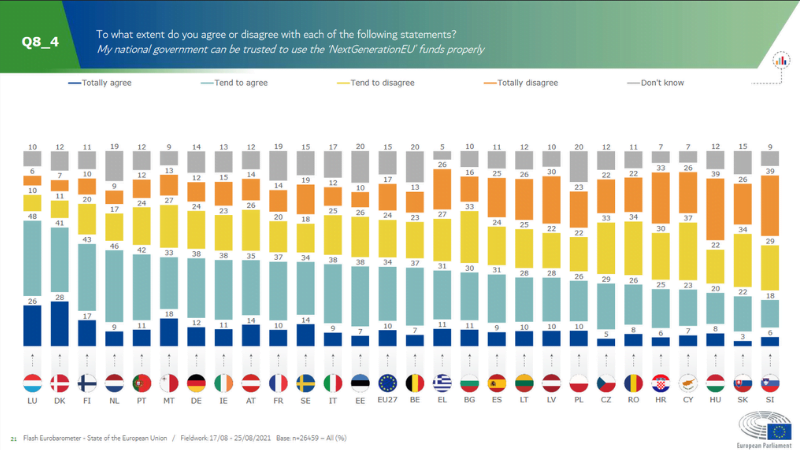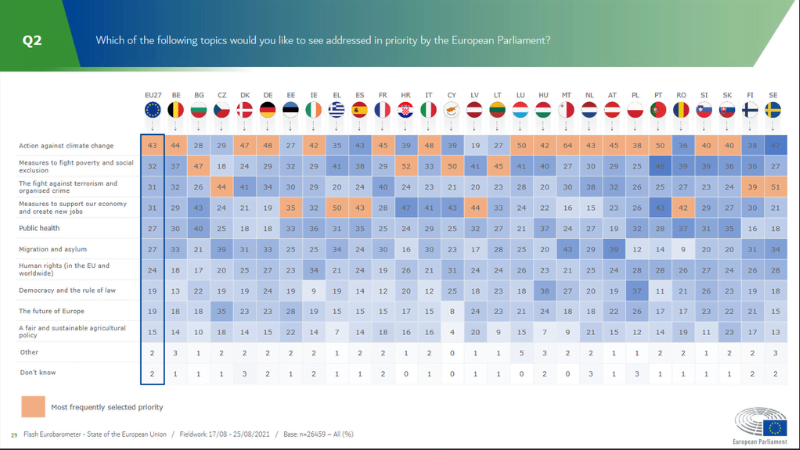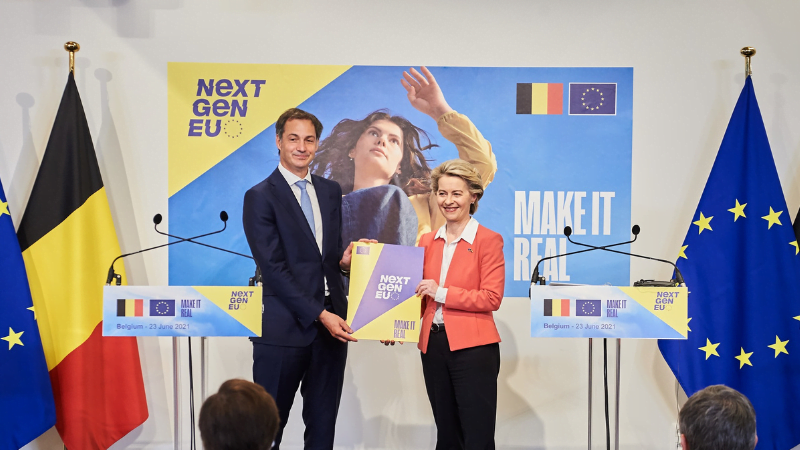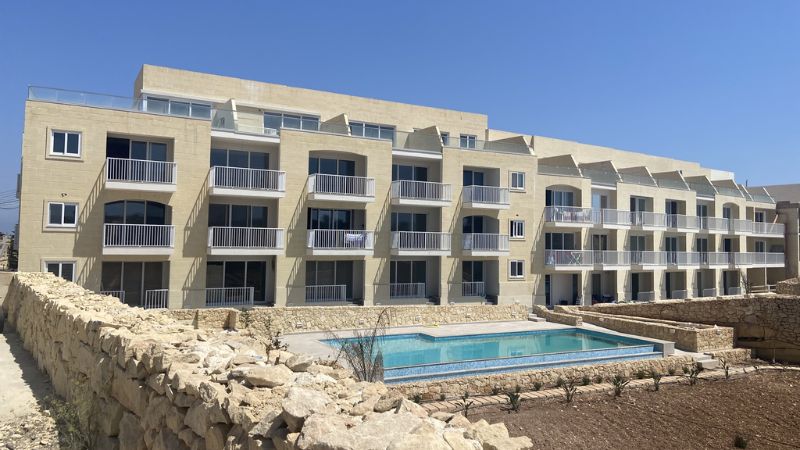More than four-fifths of Maltese respondents to the EU’s annual EU Barometer survey believe that the EU funds should only go to nations that respect rule of law and democracy, while well over two-thirds called for more transparency and control over the way funds are spent.
Just 18% of the Maltese population ‘totally agrees’ that the government can be trusted to spend EU COVID recovery funds in an adequate manner, an annual EU Barometer survey revealed, with an additional 33% tending to agree that the government can be trusted.
69% of local respondents totally agreed with the need for transparency and control over the way the upcoming tranches of NextGenerationEU+ funds are going to be spent. In total, the funds amount to €800 billion in direct payments and soft loans.
Malta fits into an overall trend of distrust towards EU member states’ national governments and their ability to spend EU funds meant to speed up recovery after the COVID crisis: 41% of the 26,459 people across all member states who responded to the survey questioned their governments in this regard.

A chart showing different levels of trust in national governments’ use of EU funding. Source: EU Flash Barometer
Overall, Maltese respondents were happy with the way the government handled the COVID pandemic itself, with 69% responding positively overall and a further 82% praising the vaccination strategy.
Respondents across Europe also mostly agreed that the funds should only be allocated to member states that respect the rule of law and the democratic principles of the EU, with 81% arguing in favour of this being the case. In Malta, that number rises to 83%.
As for priorities that Europeans want their representatives in Brussels to bear in mind, 43% voted for action on climate change, by far the biggest concern flagged by citizens. 32% of respondents also wanted to prioritise the fight against social poverty and exclusion, while 31% were concerned over the fight against terrorism and organised crime.

A chart showing EU citizens’ top priorities. Source: EU Flash Barometer
As for Malta itself, 64% of the population wishes for action against climate change to be prioritised, 21% above the average respondent across the EU. On average, Maltese citizens also responded above the average when it comes to prioritising democracy and the rule of law: while just 19% of EU citizens believed it’s a priority, 38% of respondents in Malta did.
This angle was further enunciated by the larger share of local respondents who believed that the overall direction of the country is the wrong one, rather than the right one. Only 26% of locals thought Malta is generally headed towards a positive future, with 41% stating the opposite.
Besides assessing trust in individual member states’ governments, the survey also sought to determine public perception of the benefits of EU funding. 60% of Europeans expect NextGeneration projects to help their country recover from the devastating effects of the pandemic.
Overall, around 53% of the survey’s respondents seem to have a good impression of the EU’s image as an institution. The surveys, conducted using online methods, were held from 17 – 25 August of this year. Sample sizes for small countries like Malta were at about 500 while at least 1000 respondents were recruited from larger countries.













